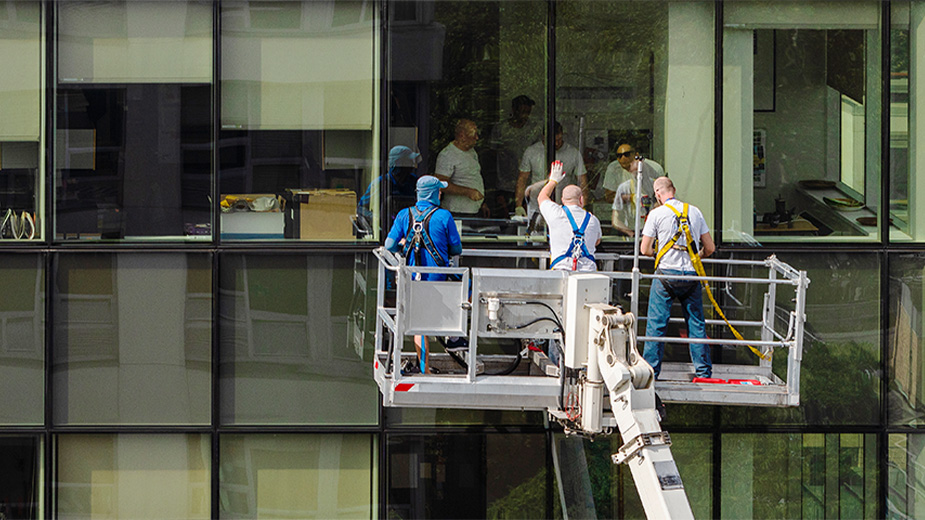Would Passage of Issue 2 be Good for Ohio and the Valley?
YOUNGSTOWN, Ohio – Supporters of Issue 2 – the statewide ballot issue that would legalize and regulate the adult use of marijuana – say the measure would lead to its safe, monitored adoption and boost job creation throughout the Mahoning Valley and Ohio.
Not so, say opponents of the issue. They argue that passage of the measure would send the wrong signal to the business community and have long-term consequences on the region’s health and workforce.
“We have heard clearly and loudly from our members that passage of this initiative would be detrimental to the Valley and have negative, far-reaching consequences for those who live and work here,” said Guy Coviello, president and CEO of the Youngstown/Warren Regional Chamber.
“The region is poised for great economic success, especially in manufacturing and transportation, in coming years. This legislation could diminish that success,” he said in a statement.
Other organizations such as the Ohio Manufacturers Association, the Ohio Chamber of Commerce, the Ohio Farm Bureau and the Ohio Business Roundtable have all stated publicly their opposition to the issue. Gov. Mike DeWine has also come out against the measure.
The chamber said in a press release this week that legalization of recreational marijuana would “exacerbate” the emerging workforce crisis across the state and force employers to spend millions of dollars in policy changes and cease drug testing.
Another consequence is the probability of overall increased health care costs because of addiction treatment, while more dispensaries and easier access to marijuana could create barriers for people and companies looking to relocate to Ohio.
Furthermore, the chamber asserted that marijuana is still classified as a Schedule 1 narcotic by the federal government. “This ballot issue will create conflict, resulting in appeals and lawsuits, further driving up costs for services” and clogging up an already overburdened court system.
Yet Brian Kessler, chairman of Riviera Creek, a medical marijuana cultivator and processor in Youngstown, said the evidence nationwide simply does not support their positions.
“One of my big issues is that I wish they were based on facts,” Kessler said. “The things that they’ve talked to just haven’t really materialized.”
Twenty-three states, plus the District of Columbia and Guam, have legalized marijuana, Kessler said.
Kessler, a Mahoning Valley native who now lives in California, said he’s in a unique position in that he’s worked in the cannabis industry across the entire country for many years. “There aren’t many people in the industry in Ohio that have been active in 20-plus other states and had a seat at the table to see how this works,” he said.
The most important aspect of this ballot initiative is that should the issue pass, it would regulate marijuana in a safe manner, Kessler said. As it stands, those who purchase marijuana off the street or from some other source have no idea whether it’s been laced with contaminants or drugs such as fentanyl.
Today, CBD shops, smoke shops or vape shops in the Valley sell Delta 8, a product that contains THC, the active ingredient in cannabis, Kessler said. “It’s all over the state,” he said. “You can get high on Delta 8, but there are no regulatory requirements. There’s no testing,” he said.
Daniel Kessler, Brian’s nephew and CEO of Riviera Creek, said Delta 8 is essentially “synthetic marijuana that they’ve processed from hemp. These products that are being sold through these shops – there’s no regulation.”
Instead, Issue 2 would enforce regulations on adult marijuana use, ensuring that it is safe, Brian Kessler said.
There are approximately 1 million to 1.5 million people in Ohio who buy marijuana on a regular basis, he said. Those who don’t source the product locally could drive to other states where recreational use has been legalized, especially border states such as Michigan.
The problem is that should someone cross the border and transport the substance back to Ohio, it’s a violation of federal law. Another issue is that the money that was used to legally purchase the product remains in Michigan, and Ohio loses out on revenue and tax dollars.
“You’d think we’d like to keep that money for ourselves,” Kessler said.
Kessler said the law would create a diversified supplier base. Initially, 50 new cultivators and processor licenses would be issued on top of the 83 that exist today, he said, with more that could be added in the future.
The bill would also create another 200 dispensaries across the state.
That should put to rest concerns that there would be a “store on every corner,” Daniel Kessler said. “It is going to be enough to support the industry but nothing like this fear that there’s one on every corner.”
To place this into perspective, Brian Kessler said there are 600 dispensaries in Los Angeles alone.
Passage of Issue 2 would likely lead to an expansion at Riviera Creek, he said. The company employs approximately 100, and legalizing adult use would lead to an increase of between 20% and 30%. It would also constitute the need for additional grow rooms at the location.
“Demand should go up,” he added.
Voters will decide on the issue Nov 7. Kessler said recent polls suggest there’s more support for the measure than against it, but he’s wary of those statistics.
“I don’t trust polls,” Kessler said, noting he’s been campaigning across the state in support of the issue. Should it pass, “the majority of the market winds up accessing a safe, regulated, tested product.”
Pictured at top: Daniel Kessler, president of Riviera Creek, and Brian Kessler, chairman of Riviera Creek.
Copyright 2024 The Business Journal, Youngstown, Ohio.



